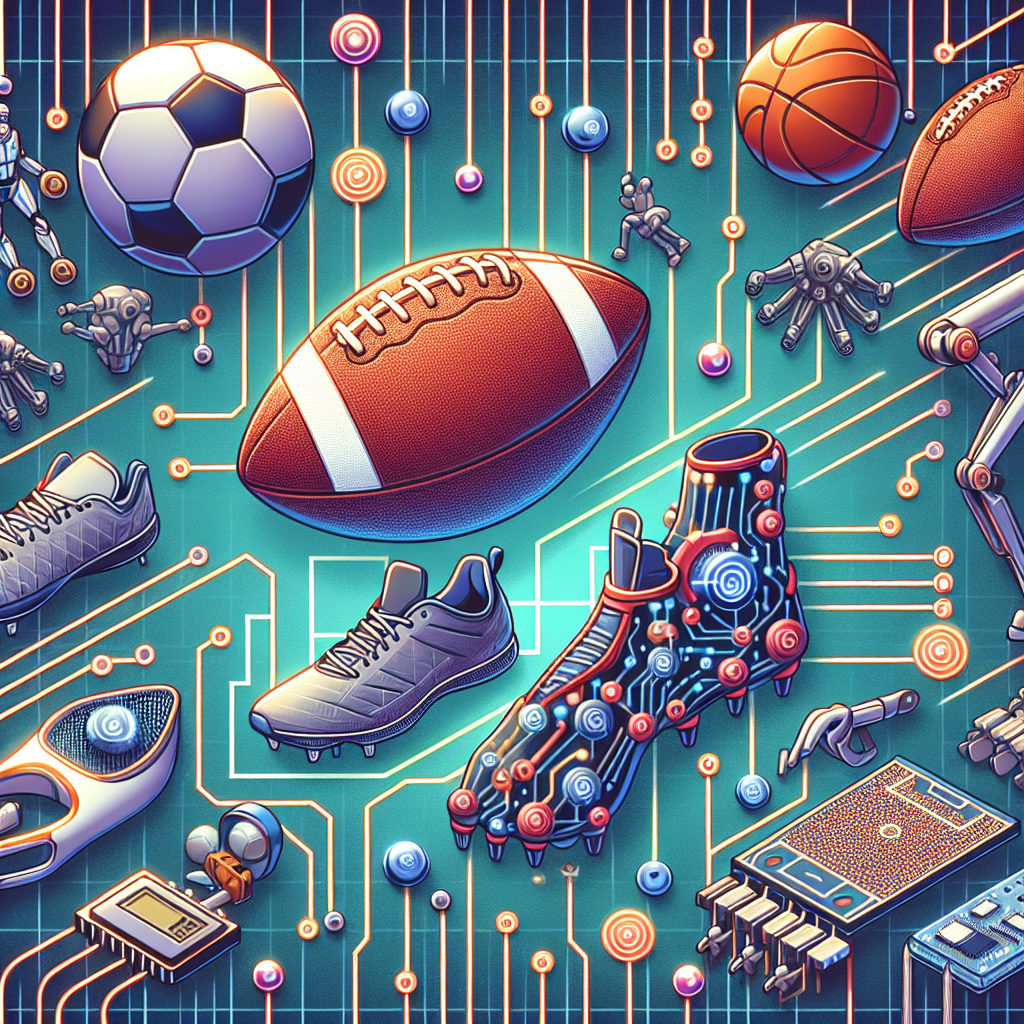AI Deployment in Sports: Enhancing Performance Analysis
Artificial Intelligence (AI) has transformed various industries, including sports, by providing valuable insights and enhancing performance analysis. From player tracking to injury prevention, AI has revolutionized the way sports teams and athletes approach training and competition. In this article, we will explore the various ways in which AI is deployed in sports and how it is revolutionizing performance analysis.
Player Tracking
One of the most significant advancements in sports technology is player tracking using AI. With the help of cameras and sensors, AI algorithms can track every movement of players on the field, providing valuable data on their speed, acceleration, distance covered, and even heart rate. This data is then analyzed to identify patterns, strengths, and weaknesses in players’ performances, helping coaches and trainers make informed decisions about training and strategy.
For example, in football, AI-powered systems can track players’ positioning on the field, their passing accuracy, and shooting efficiency. This data can be used to create heat maps, showing where players spend the most time during a match, and to identify areas for improvement in their game. Coaches can use this information to develop personalized training programs for each player, focusing on their specific needs and weaknesses.
Injury Prevention
Another area where AI is making a significant impact in sports is injury prevention. By analyzing players’ movement patterns and biomechanics, AI algorithms can identify potential injury risks and help trainers develop personalized training programs to mitigate these risks. For example, in basketball, AI-powered systems can analyze players’ jumping techniques and landing mechanics to detect signs of fatigue or muscle imbalances that could lead to injuries.
AI can also help in monitoring players’ workload and fatigue levels, ensuring they are not overexerting themselves during training or matches. By tracking players’ heart rate, sleep patterns, and recovery time, coaches can make informed decisions about when to rest players or adjust their training intensity to prevent injuries.
Performance Analysis
AI is also revolutionizing performance analysis in sports, providing coaches and analysts with valuable insights into players’ performances. By analyzing game footage and tracking data, AI algorithms can identify key moments in a match, such as successful plays, missed opportunities, and defensive lapses. This information can help coaches develop game strategies, make in-game adjustments, and improve player performance.
In tennis, for example, AI-powered systems can analyze players’ shot selection, movement patterns, and serve speeds to identify areas for improvement in their game. Coaches can use this information to develop tactics for upcoming matches, focusing on exploiting opponents’ weaknesses and maximizing players’ strengths.
FAQs
Q: How is AI deployed in sports?
A: AI is deployed in sports through player tracking, injury prevention, and performance analysis. AI algorithms analyze data from cameras and sensors to track players’ movements, identify injury risks, and provide valuable insights into players’ performances.
Q: What are the benefits of using AI in sports?
A: The benefits of using AI in sports include improved performance analysis, injury prevention, and personalized training programs. AI algorithms can provide coaches and trainers with valuable insights into players’ performances, helping them make informed decisions about training and strategy.
Q: How can AI improve player performance?
A: AI can improve player performance by analyzing players’ movements, identifying areas for improvement, and developing personalized training programs. By tracking players’ speed, acceleration, and distance covered, AI algorithms can help coaches identify strengths and weaknesses in players’ performances and develop strategies to enhance their game.
Q: Is AI replacing human coaches in sports?
A: AI is not replacing human coaches in sports but rather complementing their expertise. While AI algorithms can provide valuable insights and analysis, human coaches bring experience, intuition, and emotional intelligence to the table, which are essential for guiding players and making strategic decisions.
Q: What is the future of AI in sports?
A: The future of AI in sports is bright, with continued advancements in player tracking, injury prevention, and performance analysis. As technology improves and more data is collected, AI algorithms will become even more sophisticated, providing coaches and athletes with valuable insights to enhance their performance on and off the field.

